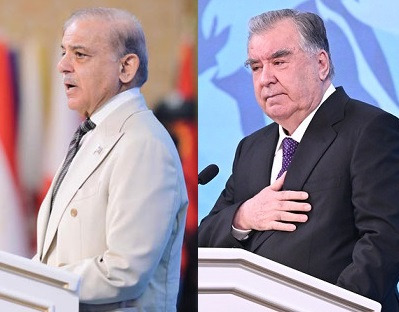by Tazeen Akhtar
Glaciers are melting rapidly due to rising global temperatures, causing multiple challenges in terms of destruction, infrastructure and loss of human lives in all countries including Pakistan, Tajikistan, other Central Asian countries, Nepal and European countries. Melting actually means extinction, which brings drought, floods and raises sea levels, wreaking havoc on coastal areas.
The rapid melting of glaciers has become a global crisis. Glaciers have been shrinking rapidly in the past few decades. This disturbing process has no precedent in human history. According to expert estimates, the largest annual decrease in glacier volume was recorded in 2023. As a result, 600 gigatons of fresh water were lost, which led to a rise in global average sea levels.This resulted in the loss of 600 gigatons of fresh water, which led to a rise in global average sea levels. Climate change has already damaged about a third of the world’s mountain glaciers.
Tajikistan, as the country with the largest number of glaciers in the world, has been working on glacier protection for the past several years. 60% of the glaciers in Central Asia are located in Tajikistan. Tajikistan is home to more than 14,000 glaciers, making it a major source of water in Central Asia. However, it is important to note that a significant number of these glaciers, around 1300, have disappeared or shrunk in size over the past 30 years due to climate change. This has raised concerns about water availability and potential disasters.

Tajikistan hosted the first high-level international conference on glacier conservation in Dushanbe from 29 to 31 May 2025, in collaboration with UNESCO, WMO and the Asian Development Bank. Participants included Prime Minister Shehbaz Sharif and 70 international organizations, including prime ministers, vice presidents, ministers, experts, scientists and the Assistant Secretary-General of the United Nations.
More than 2,600 participants from 90 countries discussed issues related to glacier melting, demonstrating their commitment to strengthening partnerships among stakeholders, promoting the enabling role of development, and accelerating progress in achieving the relevant goals of the 2030 Agenda.
President Emomali Rahmon called for the development of a global strategy for the protection of glaciers. The national leader of the country, which has 60 percent of glaciers in this region, proposed 7 points to save glaciers. Stressing the urgent need for unified global action to protect glaciers and the wider cryosphere, the host president also proposed the development of a global strategy for the protection of glaciers at the global level.
Prime Minister Shehbaz discussed all relevant issues, including glacier conservation, Pakistan’s environmental vulnerability, the 2022 floods in Pakistan, global climate action and responsibility, scientific estimates of melting glaciers, weaponization of water, and a call to protect the common destiny of nature and humanity.
To slow down the process of glacier melting, President Emomali Rahmon proposed these 7 points:
First. Raise the awareness of the global community about the vital role of glaciers in ensuring drinking water resources and addressing a set of interrelated sustainable development issues.
Second. Strengthen international cooperation, including through the active involvement of scientists and researchers, civil society, and other stakeholders, to address the problem of melting glaciers and its far-reaching consequences.
Third. Conduct comprehensive monitoring and scientific research to better understand the dynamic changes of glaciers and the impacts on ecosystems, water resources, socio-economic issues, and global climate change.
Fourth. Implement collective actions to address the socio-economic consequences of glacier melting, including its impact on accessing water, ensuring food security, producing electricity, protecting cultural and natural heritage, etc.
Fifth. Most measures aimed at protecting glaciers are closely aligned with measures aimed at addressing climate change.
Sixth. Effective use and mobilization of financial and technical resources for the practical implementation of glacier preservation initiatives and make contributions to the United Nations Trust Fund in Support of Activities for Glaciers’ Preservation.
Seventh. Development and implementation of strategies and action programs at national and regional levels.
The host President also proposed to develop a global strategy for glaciers’ preservation at the global level.
Conclusion
Prime Minister H.E Kohir Rasulzoda, shared the details of the discussions at the conclusion of the conference in a well attended press conference. Important outcomes of the Conference are the adoption of the Dushanbe Declaration and the Dushanbe Appeal: Call for Action, which call on UN Member States and stakeholders to take the necessary measures to strengthen international cooperation to advance and align the global agenda for the conservation of the cryosphere and glaciers.

